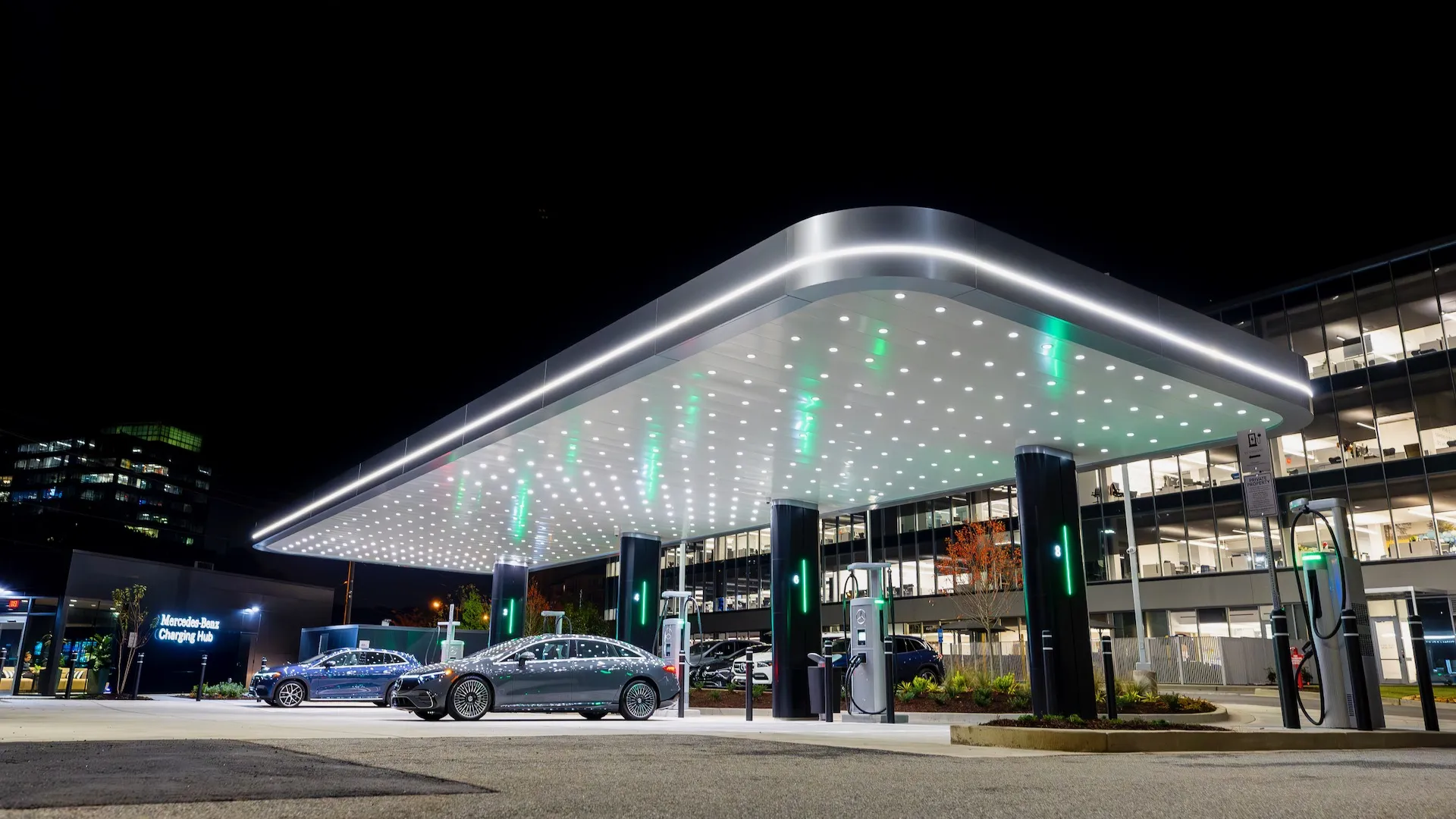When is a fully electric Jeep Wrangler arriving?
Where might the next Chevy Bolt EV be built?
This is our look back at the Week In Reverse—right here at Green Car Reports—for the week ending November 10, 2023.
The 2025 Volvo EX30 electric crossover is coming soon and sets a new stride for the Swedish brand, with a size not much larger than a Mini Cooper and its smallest-ever carbon footprint. That said, it’s also Volvo’s quickest-accelerating model ever. Read our first drive impressions of the Volvo EX30.
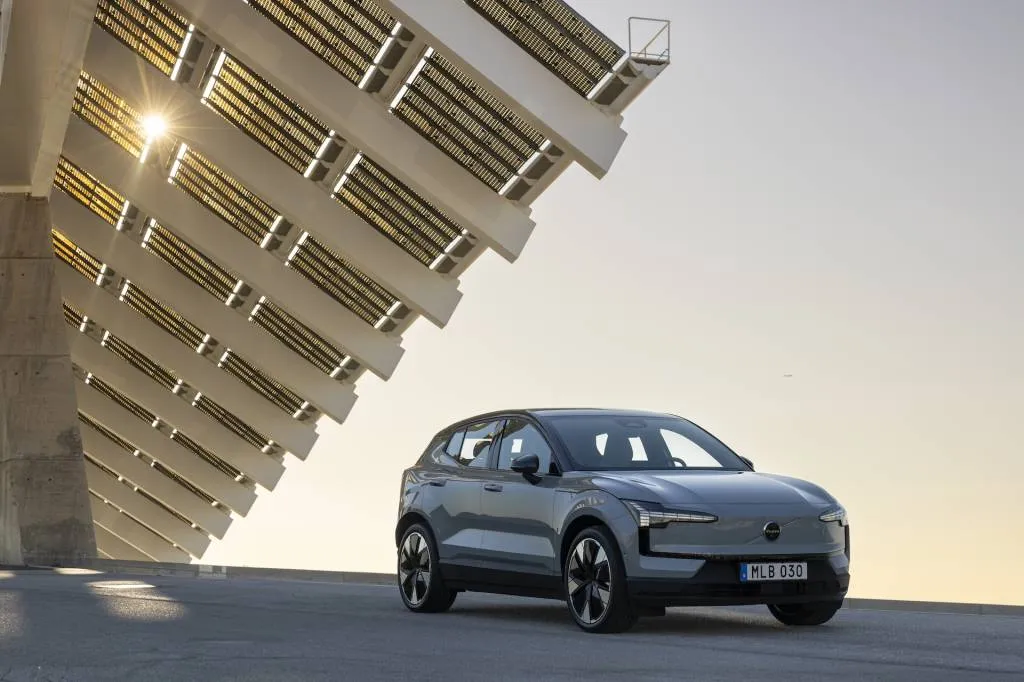
2025 Volvo EX30 electric SUV (dual-motor, Vapor Grey)
Volvo also last week announced the formation of a Volvo Cars Energy Solutions business that will seek to make the most of its cars’ bidirectional charging capability both at home and in potentially helping the grid—set to start with the arrival of the EX90. In the meantime the automaker is launching vehicle-to-grid (V2) pilot program using low-cost AC wallboxes.
Ram on Tuesday revealed a fully redesigned lineup of Ram 1500 trucks. In addition to the 2025 Ram 1500 REV and its fully electric range of up to 500 miles, the lineup will include a Ram 1500 Ramcharger plug-in hybrid that allows 145 electric miles then channels series-hybrid tech to use a full-size V-6 gasoline engine to extend range to 690 miles. Will such tech, which hasn’t quite made sense in U.S. driving cycles in the past, make sense in trucks that tow and haul?
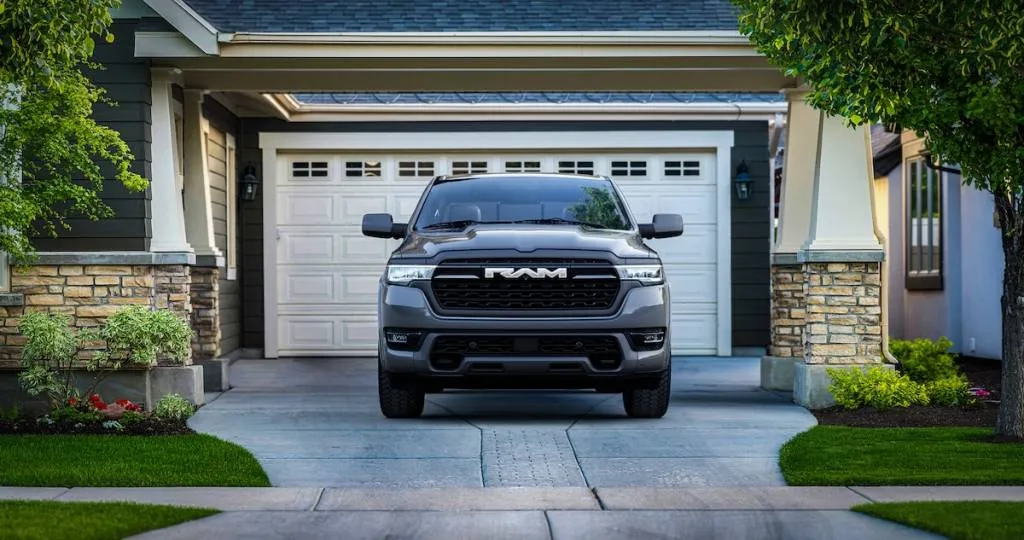
2025 Ram 1500 Ramcharger
Nissan’s e-Power series-hybrid system still hasn’t arrived in a single U.S.-market model—even as it’s become a key technology in Europe and elsewhere in its shift to fully electric models. At the Tokyo auto show last week, Nissan hinted how it might finally make sense for America—with potential plans for both hybrid and electric pickups, perhaps.
The 2025 Toyota Camry Hybrid is getting a full redesign, to be revealed next week, along with all-wheel drive for the first time. If it can maintain its mpg versus the Honda Accord Hybrid and Hyundai Sonata Hybrid, it’s definitely a market edge.
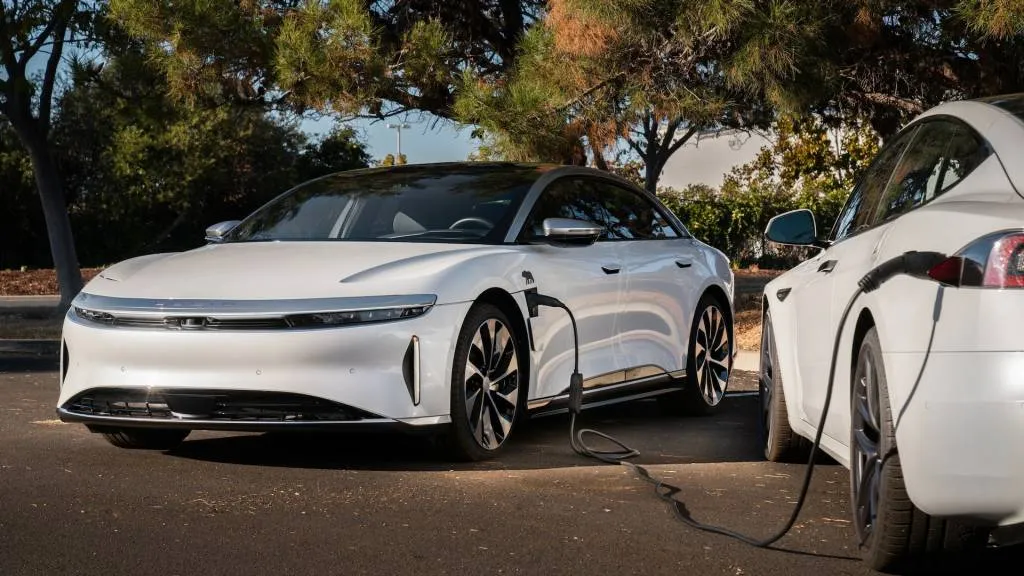
Lucid Air charging a Tesla Model S
The Lucid Air will soon be able to charge other EVs—at up to 9.6 kw, which could give some models 40 miles of range per hour. The hardware enabling it is already in the Air, but it needs to be software enabled, and you’ll also need a particular cable. Lucid also earlier in the week announced it would be shifting to Tesla’s NACS port in 2025.
Subaru joined the majority, too, declaring that it will start adopting the Tesla NACS charge port for its American-market electric vehicles. Further, Subaru EVs will get Supercharger access that same year with the availability of a CCS adapter for current models like the Solterra, the company confirmed Wednesday.
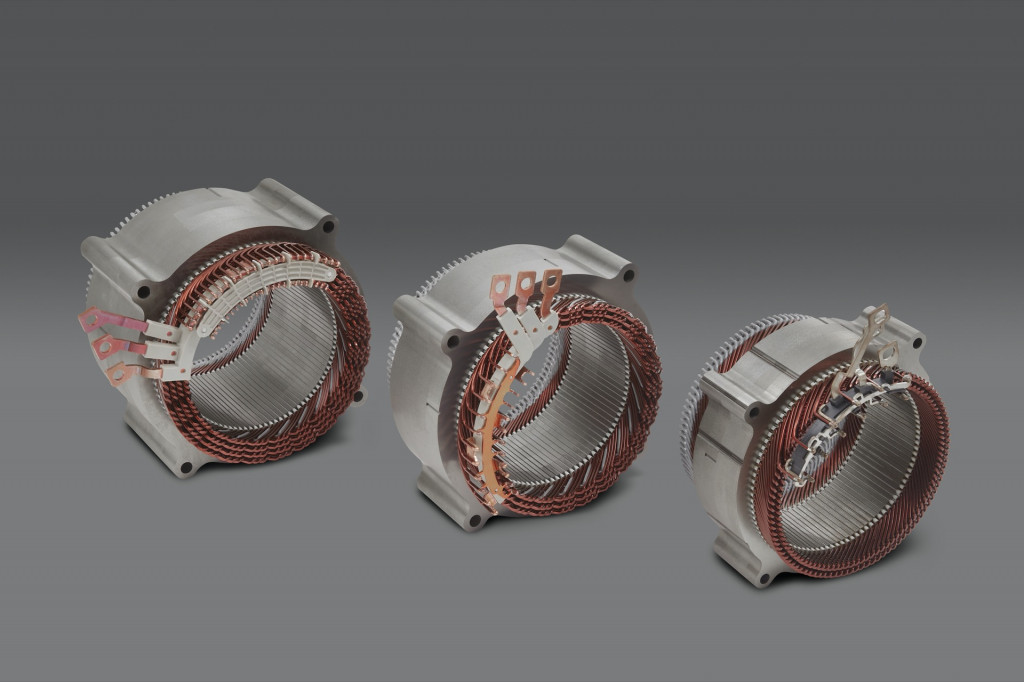
Motor family for GM Ultium-based EVs
General Motors earlier this week announced a partnership that it hopes will produce permanent-magnet EV motors without rare-earth materials—and their controversial sourcing ethics and supply chain. It’s worth noting that GM invented the rare-earth permanent magnet as we know it.
Hyundai is reportedly in the midst of developing a new generation of lithium iron phosphate (LFP) battery cells for future affordable EVs. According to a report, the automaker hopes to end development work in 2024 and start production in 2025 with batteries that could also help lessen Western automakers’ dependence on Chinese suppliers.
Polestar offered up a number of technology announcements and product previews at its first Polestar Day event yesterday. Among them, perhaps most notably, is that it’s planning to test StoreDot’s very fast-charging tech in a Polestar 5 prototype that might gain 100 miles in 5 minutes. It also gave the Polestar 5 a formal bow.
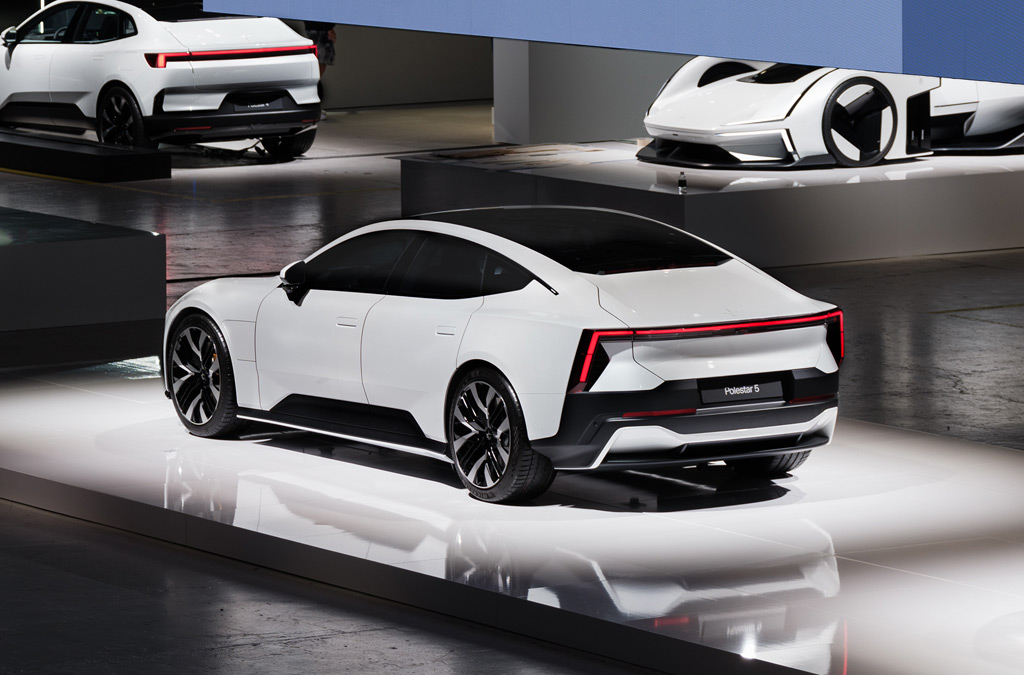
Polestar 5
Among many other news pieces emerging from Polestar: It plans to use battery cells from supplier SK On for its Polestar 5 flagship—with a high-nickel construction and in a huge format that, at 22 inches long, are not unlike the large-format cells GM uses in its Ultium EVs. Polestar says they’ll give the upcoming premium EV “superior driving range.” And a life-cycle assessment released by Polestar suggests that the brand’s Polestar 4 has a lower carbon footprint than its Polestar 2 hatchback. That counters conventional guidance suggesting that SUVs have a bigger footprint, and it suggests some big gains in China-based green manufacturing and the efficiency of this upcoming EV.
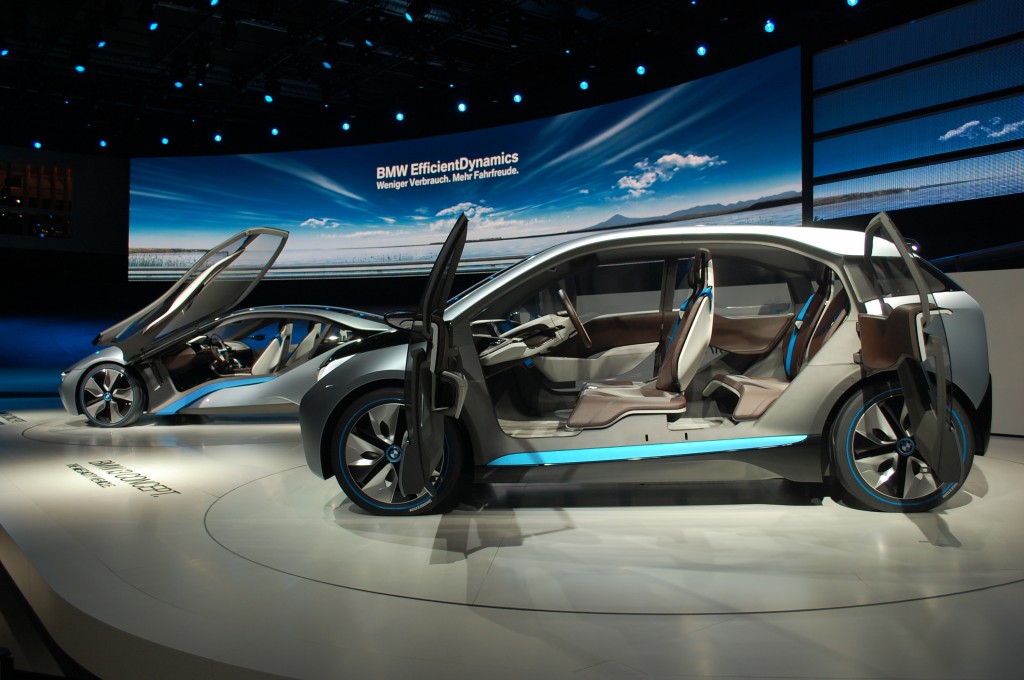
2014 BMW i3 concept live photos, 2011 Frankfurt Auto Show
The BMW i3 EV is coming back, a top executive at the German automaker confirmed in a recent report. The new version will be part of BMW’s upcoming Neue Klasse family, but you won’t find the former i3’s “polarizing design” and “outsider” styling ethos in the reboot. BMW made over 250,000 i3 models in its nine-year run ending last year.
Would a $35,000 Volkswagen EV put the brand in growth mode in North America? A top American executive for the automaker indicated it’s in the works, with U.S. or Mexico assembly, but might not arrive until 2027.
Many pieces of information about future EVs and their production locations emerged this week due to tentative labor agreements between the UAW and both GM and Stellantis. On Monday, a UAW document spilled the beans on various upcoming plug-in hybrid models and EVs from Jeep and Dodge. The details and timeline in the labor agreement assure a next-generation Wrangler with battery-electric and range-extended electric powertrains, an electric Dodge Durango SUV, and more.
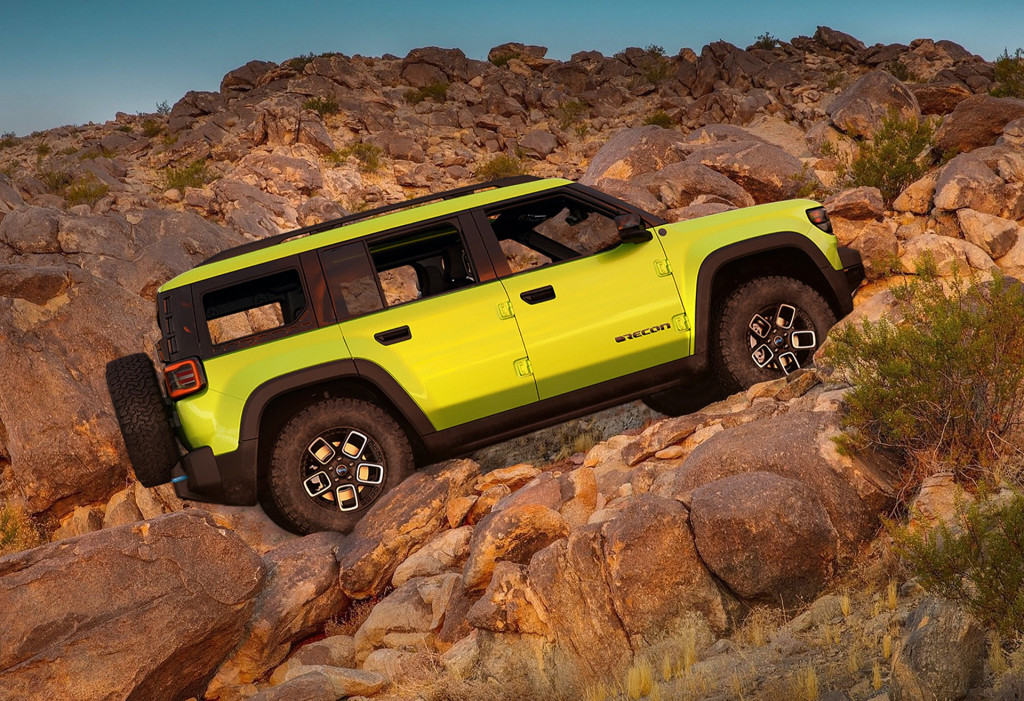
Jeep Recon
The next-generation Chevrolet Bolt EV might be made in the U.S.—at GM’s Fairfax Assembly plant in Kansas, according to a report from Automotive News, also citing labor documents. GM has already said that the Bolt EV will be the first U.S. Ultium EV to use LFP cells—not the lithium-ion cells it’s setting up joint-venture plants to build—so it could be a good EV to be made alongside internal combustion models.
And according to a report published Monday, a $27,000 Tesla will be built in Germany. It remains unclear as to whether this is the same affordable-car project originally confirmed in 2021 and due for China, or whether this is on the automaker’s platform for smaller EVs it claimed would cost half as much to make. .

Rivian Adventure Network starts
This month, Rivian is starting to bill customers for fast-charging at its Rivian Adventure Network stations. Owners will soon have pricing integrated into the app and user interface, and this doesn’t affect the company’s Waypoint destination chargers. While this doesn’t yet open the network up to drivers of other EVs, that’s something the company is considering.
And EV sales continue to rise in California, according to the latest report from the state’s dealers. EVs represented 22.3% of vehicle sales in the Golden State in Q3, higher than the previous quarter and flying in the face of doomsday remarks from executives suggesting dwindling demand.
_______________________________________








